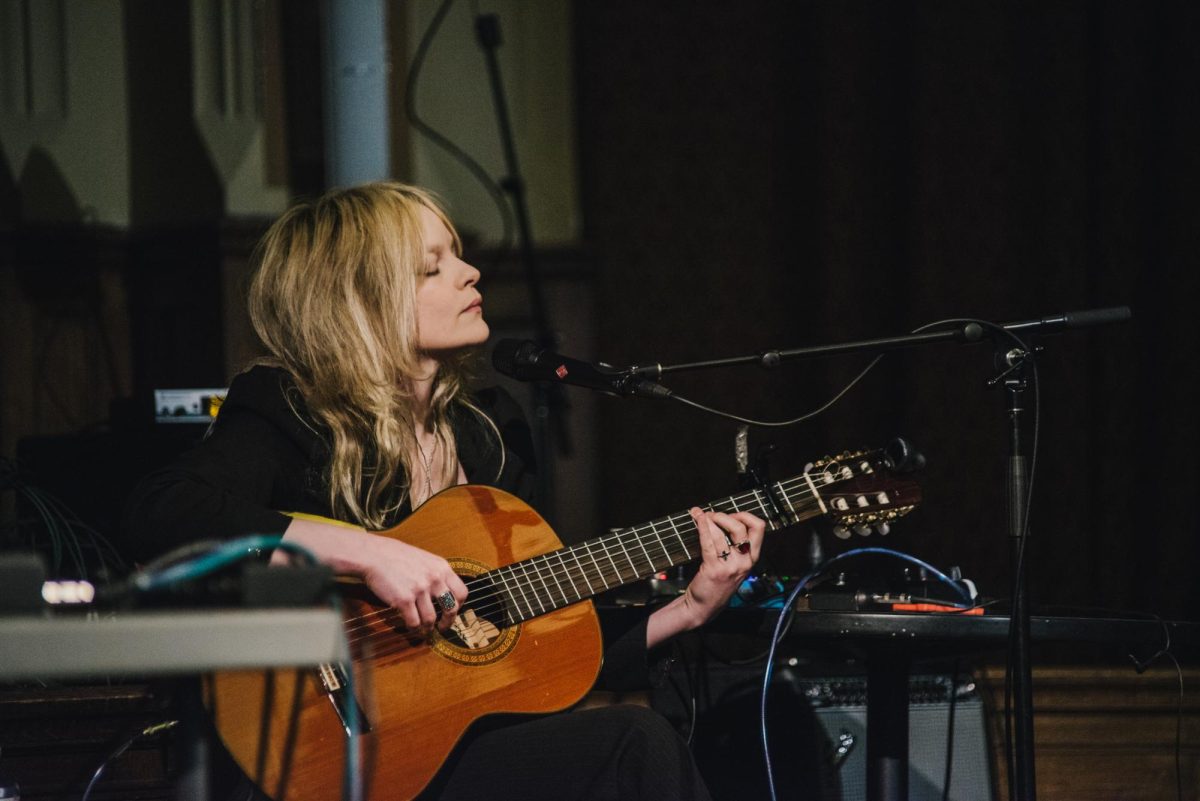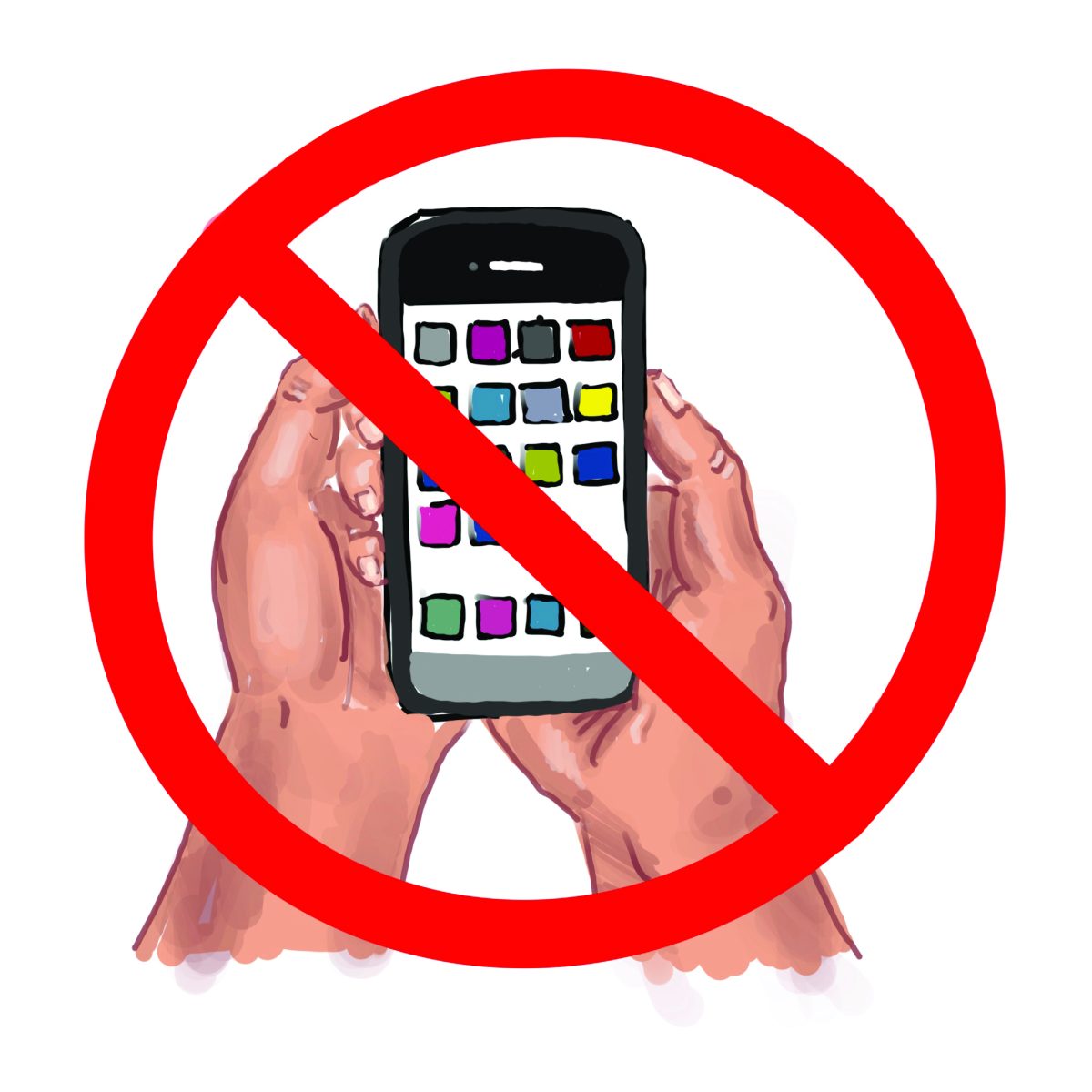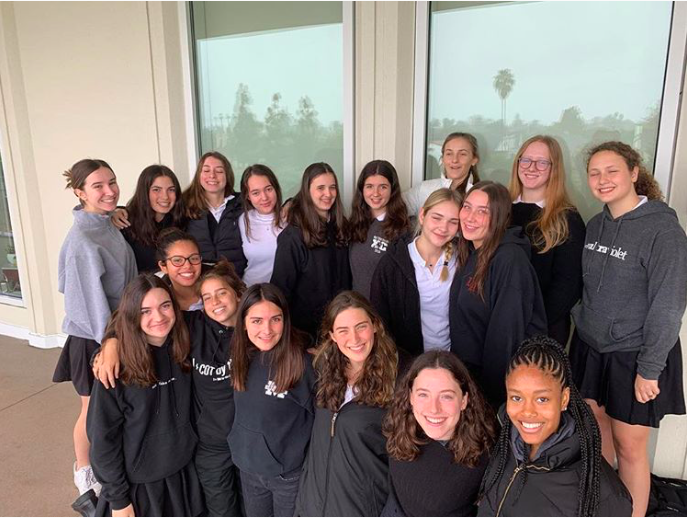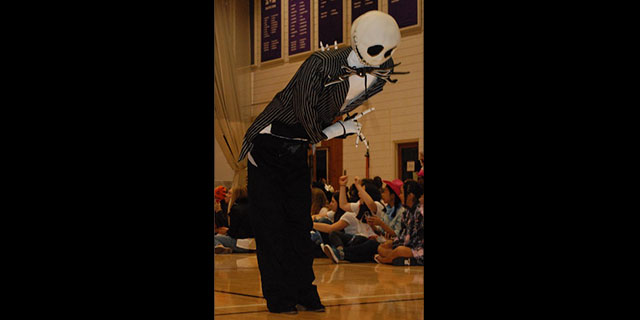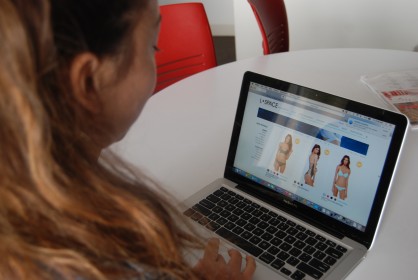
On Tuesday, Feb. 10, five members from the 15Y alumnae group, which consists of alumnae who have graduated in the last fifteen years, spoke with the senior class about career choices and adjusting to college life.
Alli Yoon ’17 sat down with five of the speakers from the panel–Kaitlyn Laverty ’04, Gemma Quick ’03, Erika Norman ’02, Phaedra Polychronis ’03, and Shaina Zaidi ’03–to discuss their professional careers and lives after Marlborough.
AY: When you were still attending Marlborough, what kinds of careers did you want to go into?
KL: I wanted to go into politics. That’s what I did after college. I did political fundraising for five, six years.
GQ: I don’t really know if I had that much of an idea. I think I was kind of interested in psychology in some way, but we didn’t have a psychology class here at that time, so it was just more of a general interest.
EN: I think I was maybe unsure, but I was thinking that I wanted to be an architect actually because I loved art.
PP: I was very interested in politics as well, so I, for whatever reason, was dead set on getting a law degree.
KL: I was, too, but I decided against that.
AY: Did your family have any expectations for your future careers while you were going to Marlborough?
KL: No. My family really wanted me to be happy. I think they were more concerned about me going to college than they were about what my career was going to be.
GQ: That’s interesting. I really don’t remember thinking about careers.
KL: We didn’t talk about it. I feel like [current Marlborough students] talk about it more than we ever did. We were talking about where we were going to go for college and possibly what our major would be. I was never talking career at that age.
AY: How did going to Marlborough influence your careers?
KL: Well, I can tell you perfectly honestly that I was working in politics, working fourteen hour days, and I hated my life. Everybody I worked with was miserable, and I wanted something that made me happy. I feel like with Marlborough everyone is so inclined to working hard and feeling that way that it was a really weird step to go be an event planner. I love it, and it makes me happy….
EN: I think that Marlborough prepares you really well for college. In that respect, it sets you up for more opportunities.
EN: You’re set up for more choices. You can go to grad school or not. You can find your own path.
PP: Yeah and, not to argue with you, but working so hard at Marlborough gives you a thick skin. It gives you endurance to help you work really hard in college. I feel like college seemed so much easier compared to Marlborough.
GQ: I just noticed that other people in college struggled so much more with really basic study skills, like writing a thesis statement.
GQ: I took an introductory writing class and I was like, “How do you guys not know how to structure a five page paper?” I just felt like I was so well prepared to take all my classes with good study skills and organizational habits that most people are so good at here. I felt like I got bit of a break academically at college. At least in terms of the general stress level and amount of work, I found it was much easier to manage.
KL: There was so much more time.
GQ: Yeah, you have more time and you get to take more classes that maybe interest you more. I liked that. It was like a nice balance between feeling well prepared for all the classes I was taking and being able to take fun classes.
KL: For me, I wouldn’t say that Marlborough prepares you for work as well as it prepares you for college. Nothing really prepares you for work. I don’t think any education we have now is going to. …People will speak to you or say things to you that you wouldn’t necessarily have expected before. You deal with things like sexual harassment. You deal with things that aren’t really in the bubble you’re used to, whether that be Marlborough or college.
GQ: You are using what you have learned in school, especially if you’ve gone to grad school and transitioning into that kind of job. It’s really applied skills and knowledge, so you haven’t really taken a class on how to be an employee.
PP: I don’t think any school can prepare you for that.
GQ: No. I think that’s part of the learning curve, but we have a lot of skills that we learned here like attention to detail and deadlines helps.
GQ: With some people that I would work with, I would just be like, “How do you not check if something’s complete or check the deadline?” Things that seem so easy to me and probably to all of us. It just didn’t make sense to me that that wasn’t part of their own internal checklists of doing good work.
AY: Why did you choose to be in the careers you’re in?
PP: I personally had political inclinations from high school, which Marlborough was really good for encouraging. Student clubs and expressing yourself. That’s why I went into law.
EN: I knew I wanted to do something after college, but I didn’t take enough science classes to go to med school, so I thought I’ll maybe go to law school and stretch it out three more years. Fortunately, it worked out, and I do love what I do. I think I thought that I liked to write and you can do a lot with law.
KL: For me, I started working on campaigns in high school, and I worked on the 2008 primary and I worked on the 2008 election. I did a lot of event-centric fundraising like really large galas. I worked with some really great event planners, and I just really was like, “This is what gets me excited.” I love money, but I got tired of dealing with all the people. No, I really love money. I love asking people for money, and I love figuring out how much I can get from them, what their limit is and their min is, but I couldn’t stand the people anymore. It was just more fun making up a five-year-old’s birthday and everybody enjoying it.
GQ: So, I took a psychology class as one of my general education electives, and I was just really interested in it. I didn’t know much where I wanted to go from there. I just starting taking more and more psychology classes and got involved in working in psychology research. I just wanted to help people. It felt like a good fit. It was something that I was interested in, and it felt meaningful.
(Shaina Zaidi enters the room.)
SZ: For me, it just came about. I started my own beverage company, and I coach here at Marlborough. For me, it was like destiny almost. Everything came about when I returned from playing [basketball] professionally overseas. I didn’t necessarily choose it. It chose me. My experience in life and college led to what I’m doing now.
AY: What were your goals while you were still at Marlborough?
GQ: Sleep more. I’m just kidding.
KL: Get into college.
GQ: We’re not that much older than you guys, but I just hear it over and over again. You guys just have a whole different framework for thinking about the future than we did.
EN: I wanted a boyfriend.
KL: A boyfriend in college.
EN: I was like, “Where are the men?”
KL: I think that we were thinking about short term goals.
SZ: Like getting through high school and day to day.
KL: Getting through AP Euro
GQ: I really don’t remember talking about career development.
GQ: I think [your generation] is really different.
KL: I think it’s good and also bad. I can’t imagine thinking about my career when I was a sophomore in high school.
GQ: I do remember a little plan to open up a flower shop. I may want to do that later in life.
KL: What you thought you were going to do when you start college is different than what you think the day you leave.
GQ: We had a little plan for the flower shop. We had a name.
KL: I wanted to open an antique store.
GQ: I think you should do what makes you happy because you are going to spend a lot of time working and a lot of it can really suck. At the end of the day, do you want to spend your life doing something that makes you miserable, even if it looks good on paper or makes lots of money?
KL: I was miserable. My home life was being affected by my work life. It’s just not worth it. I’d rather start my own company than work for someone who makes me miserable every single day.
AY: How do your work lives affect your home lives?
SZ: I think that where we are in 2015, it’s very hard to separate work life and social life completely. The work life balance has been blended. I think it’s very hard, at least for me, to totally shut off from everything. It’s about doing what you like so that way, if work does infringe on your personal life, it’s still enjoyable for you.
GQ: Self-employment is a challenge. If you’re for the most part on your own, [then] you have to like it.
KL: Our generation really has kind of gone away from [the ideas that] you have to work at a corporation, you have to work from 9:00 to 5:00, you have to work for somebody, and you have to have a paycheck. Because you’re involved in your work all the time and because of the economy, there was this move to become self-employed and start your company. People were able to explore their pipe dreams for the first time. It’s really interesting to see the mix of professionals and people who are doing startups. I think it’s about making the way for girls like you. We’re all forging our own path. I’m sure you all made mistakes along the way. Then you go back and correct it. You’re still learning, whatever you do.
AY: What are your goals for your careers?
KL: My goal is to become the most popular online event planner that there is.
GQ: I’m still building my own private practice. My goal is to reach as many people who want help as possible and make the world a little bit better with each of those interactions.
EN: My goal is just continue to get more experience and maybe some day get my own clients. I have a seventeen-month-old at home, and I just want to try to find the right mixture between working and family.
KL: How is balancing work and being a mother?
EN: I’m really lucky in that. I actually have an arrangement with my firm where I work 80% of what’s considered full time for a lawyer and I take a 20% pay cut in exchange for that. It’s been really nice and allowed me to have Friday afternoons with my son and come home early to make sure I can put him to bed. It’s something I never thought I would do until I had my son. I always thought I would be full steam ahead until I reached a beacon of success. Once I had my son, my priorities changed a little bit, and I’m learning to still have success at work. He’s the most important thing in my life.
KL: That’s something else I’m seeing with girls of our generation too. I think we all thought that we would be working moms and be the most successful at what we would do.
EN: You can’t do everything.
KL: A lot of women who have kids are seeing that they can’t do everything. You can’t have a kid and also do that. I think our mothers thought they could do that. It’s been really interesting to see really educated women to make their kids more of a priority.
EN: If there are Marlborough girls who want to be a mom, I think that’s something we should support also.
GQ: I think that when we were little that was not an acceptable option.
KL: No. I think the water is changing that way a lot….
KL: If I said that I didn’t want to work, then everyone at school what have been like “What are you doing here?”
GQ: I remember some girls wanting to go to culinary school and the administration being like “It’s not a university.”
AY: If you had advice to give to current Marlborough students, what would it be?
GQ: Balance.
KL: Balance.
SZ: Explore.
EN: Yeah, explore.
SZ: Avoid getting stuck because you’re not the best. Don’t let not being the best stop you from doing something.
PP: Keep your mind open.
SZ: Later in life, the thing you would’ve tried may be the center of what you are doing.
PP: Sometimes you get a career path set in your mind from very early on. It keeps you from trying other things that you may end up loving.
GQ: I would explore where that idea is coming from. Why are you so set on that? Is it because school is set on that? Parents? Teachers? Explore that idea and figure out what will make you happy without everybody’s expectations.
SZ: Don’t be afraid of not being the best when you try something new. I know just from being on campus that people feel like they need to be the best at something. Yeah, you want to give your best, but if you’re not the top person you can still try.
KL: Your mistakes along the way will only add more insight and value to your life. A mistake does not mean it’s a failure. It could end up being a bigger success.
GQ: You never know how that mistake is going to play out later and may be the real opportunity that opens up something better. I think that’s really hard to appreciate.
KL: You appreciate that so much more when you get older.

